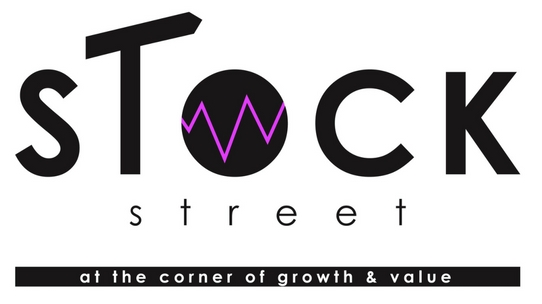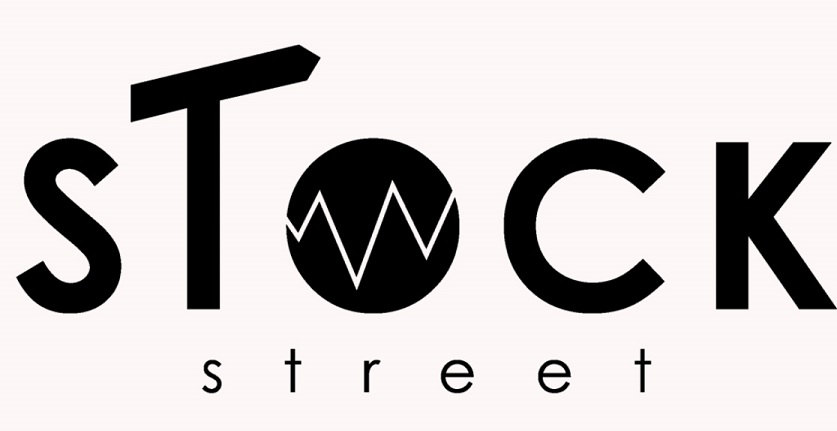Is impact investing important to you?
How about socially responsible investing (SRI)?
If you think it’s important to invest in companies having the potential to improve the world, and/or companies that are socially responsible, you likely want a robo-advisor with high quality standards. Right?
The thing is…
After doing many in-depth robo-advisor reviews, I’ve discovered that quite a few robo-advisors do a poor job when it comes to socially responsible investing (SRI) and impact investing.
This robo-advisor review highlights the best robo-advisors for both socially responsible investing and impact investing.
I’ll also explain which robo-advisors say they “support” SRI but don’t have a proper platform to keep your money invested responsibly.
Don’t miss my list of 2018’s Best Robo-Advisors. You can click here to check out the 2018 Best Robo-Advisors list!
The best robo-advisor (sorta) for impact investing is Swell Investing
There is one robo-advisor (sorta) that stands out when it comes to impact investing, and that is Swell Investing.
Why do I say “sorta”?
Because, while Swell is a platform that will invest your money in a portfolio for a somewhat low fee compared to mutual funds, it doesn’t have the technological features of most robo-advisors. Those robo-advisor features include tax loss harvesting and goal based planning software, to name a few.
Also, it will only invest in stocks, there will be no bond allocations. So the portfolio can be more risky.
If these features are important to you, it may be difficult to find a robo-advisor that will invest your money with an impact strategy.
However, if the technology isn’t important to you, when it comes to impact investing and the transparency behind the investment selection process, Swell Investing delivers.
Swell Invests in the United Nations Sustainability Goals
Each company added to one of Swell Investing’s portfolios must meet one of the United Nation’s Sustainability Goals.
 In fact, you can open up any of Swell Investing’s six portfolios and see which of these goals each company falls under.
In fact, you can open up any of Swell Investing’s six portfolios and see which of these goals each company falls under.
Six unique portfolios
There are six unique portfolios Swell has created for sustainable investing.
 The portfolios include, renewable energy, green tech, disease eradication, clean water, zero waste, and healthy living.
The portfolios include, renewable energy, green tech, disease eradication, clean water, zero waste, and healthy living.
Swell approaches each company it invests in with through three different categories.
- Top Down – They will look for world problems needed to be fixed and the companies spearheading those initiatives.
- Asses Impact – Thousands of companies will be filtered based on their impact. Swell will choose companies generating income from important impact themes.
- Bottom Up – The companies meeting the criteria for solving big problems and furthering positive impact will be analyzed from the bottom up. This will include valuing the company and its financial shape. You are investing in a company to make a profit – this is where the analysis comes in to find which companies may have the highest profit and investment potential.
The company positions itself as an investment company that goes much deeper than an SRI approach, as you can see from the graphic above.
Swell comes with a management fee of 0.75%, and because the company does not invest in funds, but, rather, individual stocks, it carries no other fees.
If you want to invest in a portfolio that strictly invests in impact companies, Swell Investing will be for you.
CLICK TO BECOME AN IMPACT INVESTOR
You can click here to read my detailed Swell Investing review.
The best robo-advisor for socially responsible investing (SRI) is Wealthsimple
Wealthsimple is a true robo-advisor – the company uses a risk tolerance questionnaire to create a portfolio based on your risk appetite.
The Wealthsimple algorithm will invest your money in a conservative, moderate, or aggressive, portfolio based on your answer to risk questions and questions about yourself (such as age).
While Wealthsimple offers technology to invest in a traditional portfolio through its algorithm, it also offers a socially responsible portfolio.
The Wealthsimple algorithm will allocate your money in either a conservative, moderate, or aggressive, portfolio. Below are the investments in each portfolio.
 Wealthsimple invests in an SRI strategy diversified with ETFs including:
Wealthsimple invests in an SRI strategy diversified with ETFs including:
- CRBN – Low Carbon
- PZD – Cleantech
- DSI – Socially responsible
- SHE – Gender Diversity
- BAB – Local Initiaitves
- GNMA – Affordable housing
 Above is the conservative SRI portfolio. You can see the portfolio is more focused in affordable housing, local initiatives, and low carbon. The affordable housing and local initiatives are bond and government securities, so they are more conservative.
Above is the conservative SRI portfolio. You can see the portfolio is more focused in affordable housing, local initiatives, and low carbon. The affordable housing and local initiatives are bond and government securities, so they are more conservative.
 The balanced Wealthsimple SRI portfolio has a bit more weighted towards low carbon than the conservative portfolio and a bit less in the affordable housing allocation.
The balanced Wealthsimple SRI portfolio has a bit more weighted towards low carbon than the conservative portfolio and a bit less in the affordable housing allocation.
 The Wealthsimple SRI growth portfolio will have a much higher weighting in the low carbon allocation. The cleantech, socially responsible, gender diversity, local initiatives, and affordable housing, are all more level weighted with 9% – 12%.
The Wealthsimple SRI growth portfolio will have a much higher weighting in the low carbon allocation. The cleantech, socially responsible, gender diversity, local initiatives, and affordable housing, are all more level weighted with 9% – 12%.
Wealthsimple is a great option for socially responsible investing and comes with a 0.40% fee for money over $100,000 and 0.50% if you have under $100,o00.
INVEST WITH WEALTHSIMPLE
You can click here to read my detailed Welathsimple Review.
An honorable mention for SRI is M1 Finance
M1 Finance is a robo-advisor, but it is not a passive robo-advisor like Wealthsimple. M1 Finance will not automatically invest your money based on you risk apetitite. It is up to you to decide how your money will be invested.
The company does have advanced rebalancing technology like other robo-advisors.
All you need to do is click a button and your investments will easily rebalance.
M1 Finance is FREE
M1 Finance gives you access to a few thousand investment choices.
You can buy anything from individual stocks to ETFs.
The best part about the robo-advisor is the lack of a management fee – you can buy and sell stocks and ETFs for free, and there is no annual fee charged on your money.
Fees are one area where M1 Finance shines.
M1 Finance and Socially Responsible Investing
Above are the two socially responsible investment portfolios available with M1 Finance. These two portfolios are comprised of ETFs from NuShares.
One portfolio invests in domestic SRI companies in the United States. The other portfolio includes NuShares SRI ETFs including international companies as well.
Above is the NuShares domestic SRI portfolio offered through M1 Finance.
As you can see, the portfolio includes both growth and value companies in the large, small, and mid size range.
Like the NuShares domestic portfolio, the international portfolio above includes the growth and value ETFs that invest in large, medium, and small size SRI companies.
However, the international portfolio also includes developed market and emerging market SRI companies internationally.
INVEST FOR FREE WITH M1 FINANCE
You can click here to read my detailed M1 Finance Review
Swell Investing Vs. Wealthsimple Vs. M1 Finance
Below is a table comparing Swell Investing, Wealthsimple, and M1 Finance
WEALTHSIMPLE | SWELL INVESTING | M1 FINANCE | |
|---|---|---|---|
| Rating | 4 | 3.8 | 4.6 |
| Management Fee | 0.40% - 0.50% | 0.75% | 0% |
| ETF Expense Ratios | NO | ||
| Account Minimum | $0 | $50 | $100 |
| Algorithm Based Portfolio | NO | NO | |
| Investment Options | |||
| Account Options | |||
| Technology | |||
| Lending | NO | NO | |
| Socially Responsible Investing | |||
| Promotions | Wealthsimple Black - VIP Airport Lounge Access; Complementary Portfolio Review | NO | Refer a friend & both get $10. |
| Read My Detailed Review | WEALTHSIMPLE REVIEW | SWELL INVESTING REVIEW | M1 FINANCE REVIEW |
| Learn More! | INVEST WITH WEALTHSIMPLE | CLICK TO BECOME AN IMPACT INVESTOR | INVEST FOR FREE WITH M1 FINANCE |
Robo-advisors doing a poor job with SRI include Betterment and Wealthfront
Betterment and Wealthfront are considered two of the most popular robo-advisors…
They are the oldest mainstream robo-advisors and have been in competition against one another for years now.
It is unfortunate the two companies don’t have an adequate SRI strategy.
While they both claim to support SRI, they fall short on their SRI strategies.
Why Betterment does a poor job with socially responsible investing.
You may have done research into Betterment’s SRI portfolio – you may even be invested in a Betterment SRI portfolio.
If you don’t look under the hood, you’re likely to come to the conclusion that Betterment has an SRI strategy that is completely adequate.
Unfortunately, this isn’t the case.
Betterment doesn’t invest strictly in socially reponsible companies with their SRI strategy.
Instead, they tilt their investment strategy towards socially responsible investing.
This is a quote from Betterment regarding their socially responsible investment strategy.
“Other asset classes, such as value, small-cap, and international stocks and bonds are not replaced with an SRI alternative in our portfolio either because an acceptable alternative doesn’t yet exist or because the respective fund’s fees or liquidity make for a prohibitively high cost to you, the customer.”
Source: Betterment
Betterment doesn’t buy SRI ETFs for small- cap and international stock allocations.
If this is the case, is it really an SRI strategy?
In fact, Betterment writes this in its whitepaper.
“We are taking steps toward socially responsible investing even if the currently available fund products do not necessarily present the ideal solutions.”
Source: Betterment Whitepaper
Personally, I think it’s a shame they brand their strategy as socially responsible, when they have small-cap and international holdings that are not invested in a socially responsible strategy.
Why Wealthfront does a poor job with socially responsible investing
Wealthfront is a bit better in one aspect, but the catch is you must have at least $100,000 invested to benefit.
Wealthfront says this about their socially responsible investing features.
“…we know our clients want a portfolio that also aligns with their beliefs. And thanks to Stock-level Tax-Loss Harvesting we’ll be able to offer Socially Responsible Investing, allowing you to build a portfolio that best represents your values.”
Source: Wealthfront
The first problem is you must have $100,000+ with Wealthfront to access stock level tax loss harvesting.
What does this mean?
It means you won’t have access to a feature for SRI unless you have $100,000.
The next problem with Wealthfront can be seen through this quote from the company.
“We’ve seen numerous requests from our clients wanting to omit buying securities in sectors spanning four main categories: fossil fuels, deforestation, weapons and tobacco. So we’re taking our cue from you and will build a one-click feature to omit one or all of these categories from your portfolio.”
Source: Wealthfront
This is a bit better and at least they offer something that can get you close to SRI.
However, you really need to be looking at individual companies to analyze if they pass as socially responsible investments.
Companies exist that fall outside Wealthfront’s four categories and are not considered socially responsible.
While you do have the option to remove companies, you’re likely not a financial analyst interested in researching which companies should be removed.
In the future, I believe Wealthfront and Betterment will improve their SRI capabilities.
But…
They are not there yet.
What’s the difference between socially responsible investing (SRI) and impact investing?
Now that we’ve talked about the best robo-advisors for SRI and impact investing, we should talk about the differences between these two approaches.
Why is this important?
The robo-advisors mentioned – Wealthsimple and M1 Finance – are great for SRI, while Swell Investing is great for impact investing.
If you decide one of these companies is for you, you should know the difference between these two investment styles in order to choose what’s right for you.
Environmental, Social, Governance (ESG)
Environmental, social, governance (ESG) investing and socially responsible investing (SRI) are often used interchangeably.
ESG and SRI use a process of “negative screening” in the investment decision process.
What is negative screening?
If companies do not fall under the values and standards of ESG and SRI, those companies will be removed from a portfolio investment. They will be screened out and considered negative in their investment potential.
According to Patrick Drum, a portfolio manager at Saturna Capital, ethical investing “…attempts to balance the profit motive with the investor’s beliefs by excluding certain segments such as “sin” stocks like alcohol, tobacco or firearms.”
SRI and ESG can be used synonymously, but where does that leave impact investing?
What is Impact investing?
Ethical investing and SRI seek to invest in a quality investment first, then focus on the social impact of the investment.
Impact investing places the importance of the investment return after the potential appreciation of the investment.
According to Drum, impact investing is the “…next rung up the ladder… where financial performance is clearly secondary to the investment’s social theme or impact.”
To make it simple, Ethical investing finds companies that are good investments, then removes those investments that do not meet ESG/SRI standards.
Impact investing is investing in companies that will make an impact and change that is measurable to society – and attempt to do this with investments in companies that will appreciate.
Review Conclusion – What’s the best robo-advisor for impact investing and socially responsible investing?
When it comes to SRI and impact investing, there are a few high-quality robo-advisors to choose from.
On the other hand…
There are also robo-advisors not doing such a great job when it comes to SRI and impact investing.
Wealthsimple and M1 Finance may be a great option for socially responsible investing…
While, Swell Investing, may be a great way for you to take part in Impact Investing.
Whatever you decide, I hope this list helps you better understand your options and what companies to avoid.
Now, I want to hear from you….
Do you use any of these robo-advisors?
Have you had any positive experience with other SRI/impact investing robo-advisors?
Disclaimer: These are the ideas and opinions of the author. The author is not responsible for the actions of those who read the posts on this blog. Each individual reader has a unique situation and unique needs. This blog is not intended to solve those unique situations of the readers. This blog is not liable for decisions made by the readers of this blog.
Did I provide value? I hope so, and I want you to know this article includes affiliate links. Hopefully, I created enough value and you want to support me – here is my affiliate link disclaimer for full transparency DISCLAIMER























